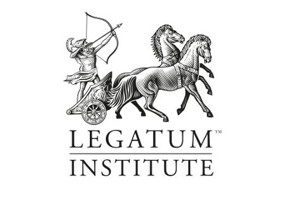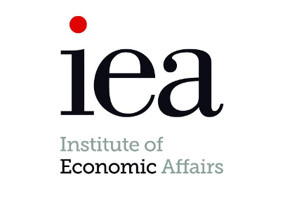Earlier this year, the Institute of Economic Affairs, an influential pro-Brexit, right-wing think tank, came under scrutiny from the Charity Commission, after revelations it had promised donors introductions to ministers.
This weekend, we learned that the IEA has been fingered by the TaxPayers’ Alliance as having participated in the smearing of Shahmir Sanni, who blew the whistle on dodgy practices behind Brexit. So have a number of other think tanks which have charitable arms, even if they aren’t charities themselves. The shadow chancellor, John McDonnell, has called for an investigation into these organisations’ funding.
It's the latest in a string of question marks over think tanks. The Legatum Institute, another right wing body, was criticised by the Charity Commission earlier this year after it produced a heavily pro-Brexit report - an approach the IEA has since appeared ready emulate.
It raises questions about whether think tanks should get to enjoy the considerable advantages of charitable status: the tax breaks and the veneer of respectability.
There are three fairly serious questions which need answers here:
- Are think tanks sufficiently independent of donors?
- Are think tanks sufficiently politically neutral to be charities?
- Are they delivering enough public benefit to be charities?
Independence from donors
McDonnell’s clear accusation is that right wing Brexit think tanks are in fact funded by a relatively small group of wealthy individuals and organisations, with their own special interests, and that the lack of transparency around their funding is anti-democratic.
We saw today that the Taxpayers’ Alliance would literally prostrate itself on the floor and admit wrongdoing in an utterly self-flagellatory way, rather than reveal any information about its donors.
The recognition of donors isn’t just a question for think tanks, actually, but it is particularly problematic for them because they are political lobbyists. Without knowing who their donors are, we don’t know whether they are advancing a partisan position out of genuine belief or because they’ve been paid to. Some think tanks declare their funding, but many don't.
So if we're asking whether think tanks are sufficiently independent of donors, the answer is that for many of them, we simply haven't the faintest idea. Which is worrying.
Anyone who lobbies government should probably have to declare their donors, whether they’re a charity or not. At present, these charities could easily be used as fronts for wealthy lobbyists who get a triple whammy: anonymity, access, and 45 per cent of their money back in tax relief.
I mind less if charities keep major donors anonymous when they are giving for services rather than campaigning, but I’m still not convinced about the merits of this argument. All large gifts come with the potential for corruption or misuse, as well as a massive tax break.
If you get a massive tax break from government, we should know who you are. If you’re so ashamed of giving to charity that you don’t want your name known, we should ask why you’re doing it.
To be honest, I think people should have to declare their income and their wealth publicly, as they do in Scandinavian states. Too much of the money in this country is controlled by a handful of anonymous individuals. But that’s a separate issue.
Political neutrality
Political neutrality is always a tricky issue for charities, especially think tanks. The current rule is basically that you can advocate or oppose any policy in line with your charitable objectives, but you can’t endorse a political party.
In theory, this means you can oppose every Conservative policy, so long as you believe they're all bad for your beneficiaries, without being party political. In practice, this is likely to be tricky, as Oxfam has found in the past.
But there's an interesting twist here. Many right wing ones exist for the purpose of education. They say they exist to spread information about the merits of free market economics.
An education charity can take a strongly political stance when campaigning for better education. But it must be “broadly uncontroversial” when providing that education.
The Charity Commission has said in the past that the IEA passes that test – using rather dubious logic – but it is now investigating again.
My feeling is that the IEA obviously doesn’t pass. Neither do other right wing think tank charities, for reasons I will explain. But I can see three reasons why the regulator is minded to defend the current position.
Realpolitik
The Conservative party is, unsurprisingly, made up of right wingers, and advancing right wing beliefs – free markets, low taxes, reduced regulation – tends not to be charitable under charity law, while advancing left wing beliefs – more taxes, higher benefits, greater spending on care, health, education – usually is.
So partisan left-wing think tanks, like the IPPR and Resolution Foundation, can exist for the relief of poverty, while partisan right wing think tanks usually can’t, and have to pretend they’re educational. This is obviously a fiction but if we don’t make that pretence then it’s obvious charity law favours one end of the political spectrum.
The law is a mess
Your right to charitable status depends only on your purposes, not your activities. So if you exist to provide education, and you sometimes do it in compliance with the rules but sometimes don’t, you can be censured for getting it wrong, but it’s relatively tricky to actually shut you down.
This commits the Commission to an endless game of whack-a-mole. A think tank produces a report, people complain, everyone argues, and you finally order the report taken down, long after everyone who cares has downloaded a copy. Then the think tank writes another report, and it all starts again.
Resources
It’s bloody expensive to shut down think tanks because they have good lawyers. And so regulators simply don’t have the cash.
Public benefit
Back to this question of education again. Are think tanks offering public benefit by providing education? I’m minded to think not. They say they exist to educate, but they really exist to change policy. They are primarily campaigning organisations, and the law is clear that if campaigning is really your primary purpose, you shouldn’t be charitable.
When you have two charities lobbying for opposite things there's an increased likelihood that at least one of them is not really a charity at all. This can happen easily with think tanks, who are so anchored to a particular subset of answers that they can be very polarised. I wonder if you could find one thing the IPPR would advocate which the IEA would support.
The law here isn’t the same as the public perception, either. If the campaigning arms of Greenpeace and Amnesty International were charities, then actually the public would probably be fine with that, but could you say the same about the IEA?
Legatum and later IEA both employed Shanker Singham, who has close connections to ministers, so their behaviour is obviously political in nature and must involve attempts to influence political decision making.
I also question the public benefit of any charity which couldn’t identify a beneficiary. If you don’t know who the people who benefit from your services might be – couldn’t spot one on the street – I wonder if you’re really a charity.
In short...
It's a mess. Think tanks are kind of stuck in a twilight zone, neither fish nor fowl. The maddeningly vague rules of charitable status mean they can get away with being charities by obeying the letter of the law, while clearly not being in the spirit of it. Their close connection to political parties makes them hard to touch, and it’s just too tricky for anyone to really sort it out.
It’s just another argument, as if we needed one, to change the rules. What you do should define your charitable status, not what you say you’re for. The Charity Commission should be able to take away your status (and therefore all your money) if your actions aren’t charitable. That, by itself, would probably be enough to remove charitable status from most think tanks.
Quite separately, we also need a proper register of lobbyists, with all the transparency that would bring, and a register of donors to those lobbyists, while we're at it.
Because if you're willing to do something you should be willing to say you've done it. And because charities should be the champions of the underdog. The thought of them being used as anonymous mouthpieces to benefit the wealthy really sticks in the craw.
Related articles











